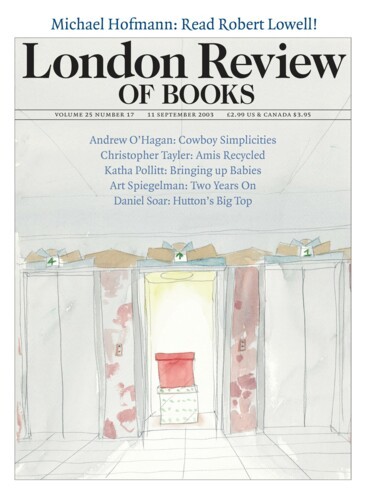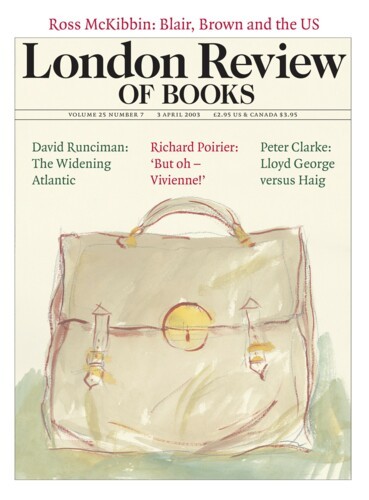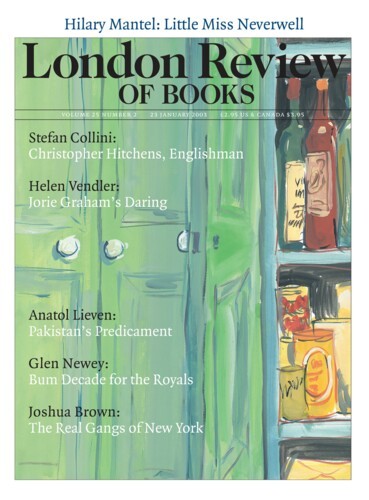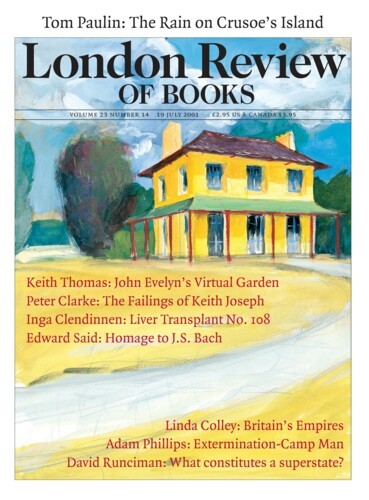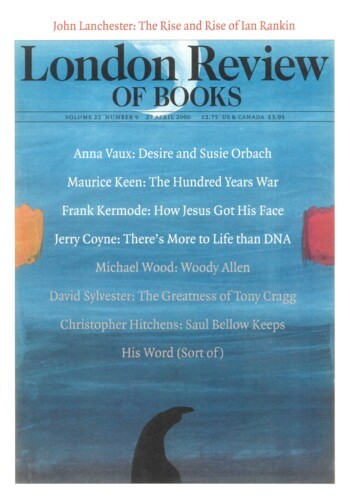Blair Must Go: why Tony Blair should go
Peter Clarke, 11 September 2003
All that Bush needed to justify war was the war itself. What Blair would need to justify the war would be not only the end of the former Iraqi regime, which nobody mourns, but a good peace. That is what he promised, not least for Palestine. What was at stake was always the consequences of his actions, not his moral convictions. Whether Iraq and Palestine and the whole region are now better off and a lesser threat to peace is still the test.
